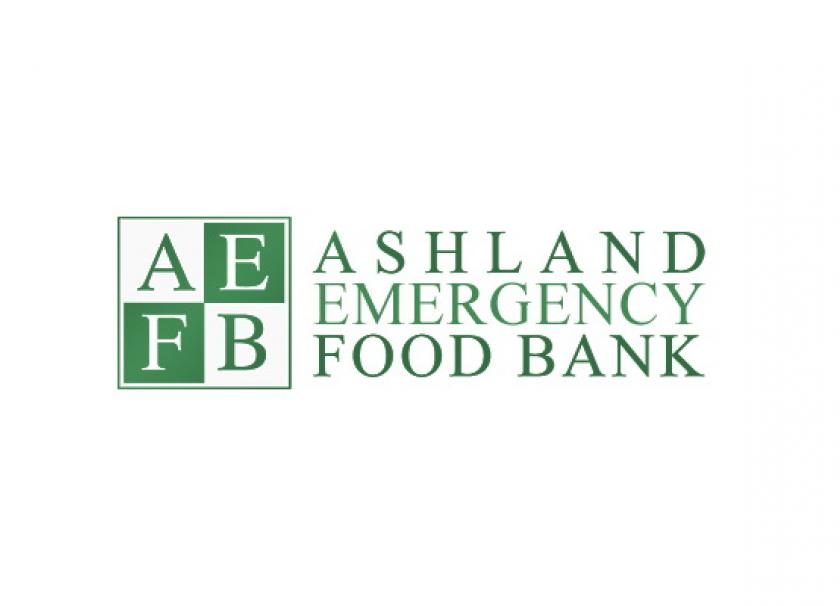
Get to know Ashland Emergency Food Bank
The sixth cooperative principle, "Concern for Community," has become even more important since the pandemic began and economies, locally and globally, started to constrict. To address this, the Board of Directors agreed in April to release 100% of patronage dividends and designate Ashland Emergency Food Bank as a donation option for those dividends - resulting in over $20,000 in donations. And with the early launch of Change for Good register round-up, AEFB was a natural choice to receive round-up donations.
Read on to learn more about AEFB from board president George Kramer, including how you can continue to support their mission.
Can you give us a brief history of AEFB? How did it start? Who are your volunteers?
Community and faith-based groups formed the Food Bank in a garage 1974 to address food insecurity as the result of the oil crisis. Over time, and multiple locations, we have grown into a daily community-owned food bank that provides free-of-charge support to about 1700 people monthly. We have two employees and rely on hundreds of volunteers, the Ashland Food Project, and the generosity of the community to make it all work.
How have things changed at AEFB since the pandemic began?
In mid-March we scrapped our traditional “shopping” model in favor of a modified “box.” This allowed us to minimize entry to a limited number of volunteers, keeping them safe, our building secure, and still provide food to clients. Over the past months we have improved on that system. Shoppers fill out a short list based on our available items and their preferences, and our volunteers pull the products and fill their box. A “Free Table” is located outside, with perishable produce and other items. Everyone must wear a mask and we sanitize in between individual shoppers, who are not permitted past the Intake/Entry Foyer.
Have you seen new, inspirational ways in which the community has stepped up to support the AEFB mission and each other?
It has been truly humbling to see the out-pouring of support for what we do, and the amazing willingness of our staff and volunteers to make near daily changes to keep our service open and functional. When the Ashland Food Project “Green Bags” were canceled, their donors sent us “Cash, not Cans” to help us purchase replacement food. We have been overwhelmed by offers of support, of time and money. We made a plea for sanitizer and a local company provide it. We asked for help building plastic guards, and a local contractor built it for us. We appreciate everything the Co-op has done to support us to help meet the community’s need.
What efforts can locals take on to improve food security or help AEFB's mission?
We are here to serve the community and our entire mission is to assure that anyone who needs food from us can get it. Unlike government supported foodbanks we rely entirely on donations but that also means that we don’t have a lot of paperwork or ask a lot of questions. If you are an Ashland or Talent resident and you need food, we will provide you with some. Being local is our only rule for service. Your readers can support us by making sure that the word gets out that we are open, that we have food, and that we are there to help anyone that asks. If you don’t need food personally, please consider supporting our efforts, either with a donation, with your time, or just telling a friend that is in need.
To learn more about Ashland Emergency Food Bank, click here to visit their website.
More Co-op News
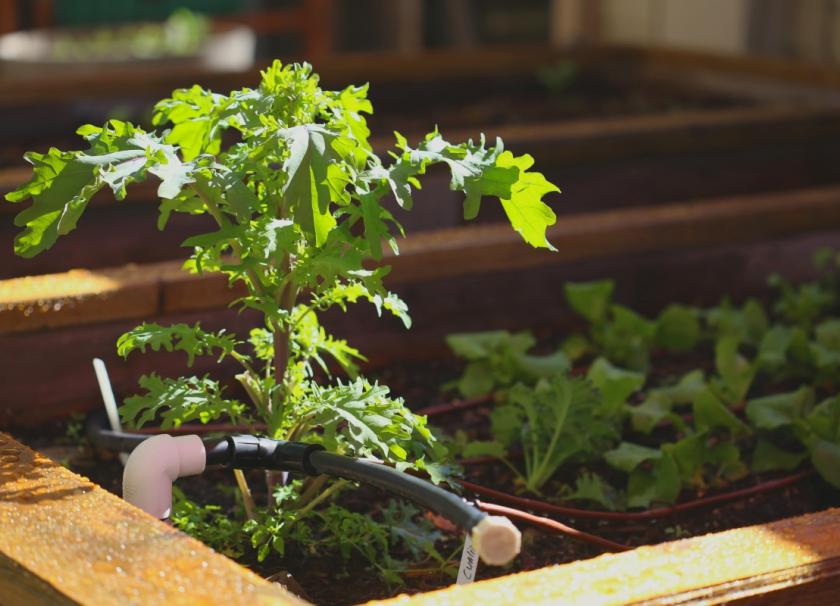
Henry in the Garden: Already Preparing for the Spring
The bane of all gardeners is powdery mildew - that white substance that collects both on the tops and bottoms of the leaves of your healthiest vegetable plants. Cucumbers and zucchini seem to be more easily affected by this scourge than many others.

GM Report: Gratitude for a Great 2019 at the Co-op
It’s the season of gratitude and reflection on the year that has passed, and there is so much to be thankful for as a Co-op owner.
2019 started off with the news that over $13,000 in emergency donations had been raised from Co-op owners and shoppers for support and relief efforts after Paradise, CA was leveled by a wildfire. This outpouring of our support was critical in the months after the fire, after the news trucks had left and the work of rebuilding began. I know how grateful we all are for the much calmer smoke season that our region experienced this summer.
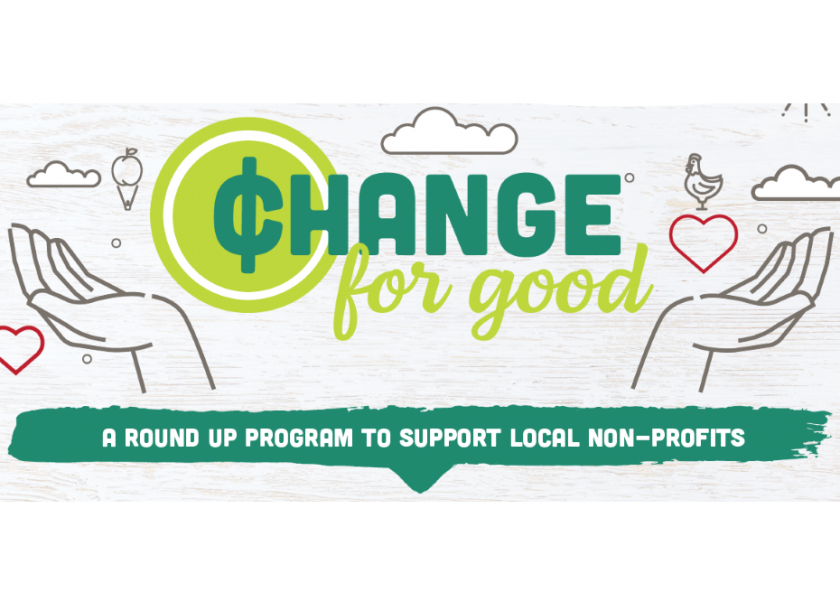
Rounding Up in October
Part of what makes co-ops unique are the guiding 7 Principles of Cooperation. One of the seven that is felt strongly in Ashland is "Concern for the community" - and that's why the Co-op is offering a new way to give back to our community for the month of October. When you pay at the register, you can round up your total to the nearest dollar. For example, $11.68 becomes $12, and $0.32 is donated.
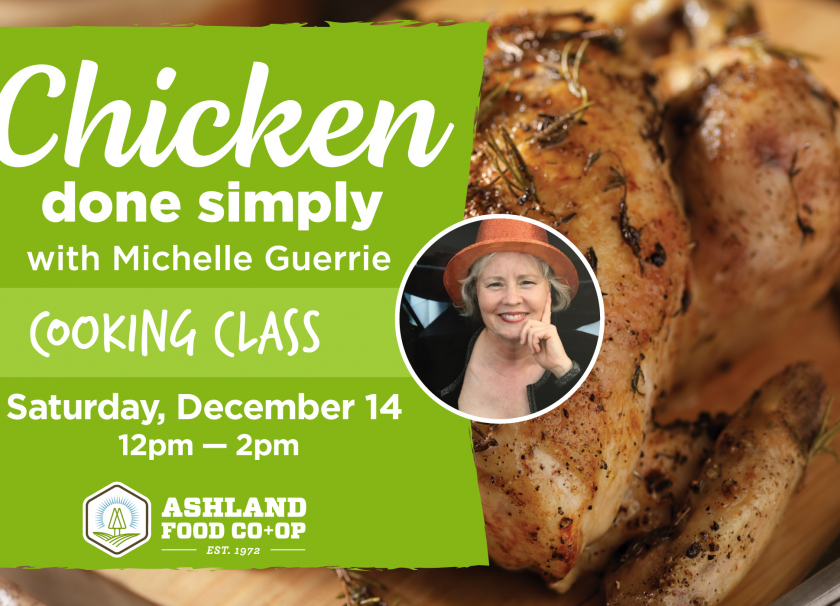
Win 2 tickets to "Chicken Done Simply" cooking class
Find out how fun and educational Co-op cooking classes are! Sign up below for the chance to win two free seats (for you and a friend or loved one) at the next class, "Chicken Done Simply" with the Co-op's own Michelle Guerrie.

Fall Staff Picks
Thanks to alpine trails and shaded valley creeks, outdoor recreation is year-round in the Rogue Valley. But fall usually makes for more frisky feet, so we asked Co-op employees for their favorite fall activities and recommendations for what they grab before they head out.

Applegate products joining Co-op Basics
Just in time for the school year, Applegate products are being added to the Co-op Basics program! The Co-op carries a variety of Applegate products, like sliced deli meat, cheeses, bacon, and sausages. Now as part of the Co-op Basics program, you’ll be saving up to $2 on Applegate products across the store, every day.

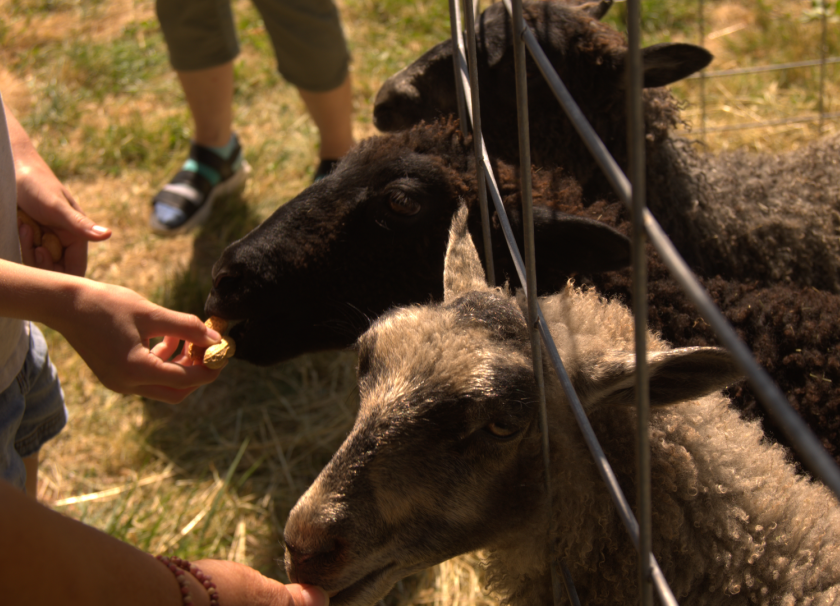
2019 Farm Tour Recap
Another successful farm tour is in the books! With 30 farms this year, visitors could see how bigger farms work, like Herb Pharm, Fry Family Farm, and Rogue Creamery, while also experiencing the joys of smaller farms, such as Turning Point Farm, Fox Run Farm, and Daily Blessing Farm.
Visitors of all ages enjoying Goodwin Creek Gardens
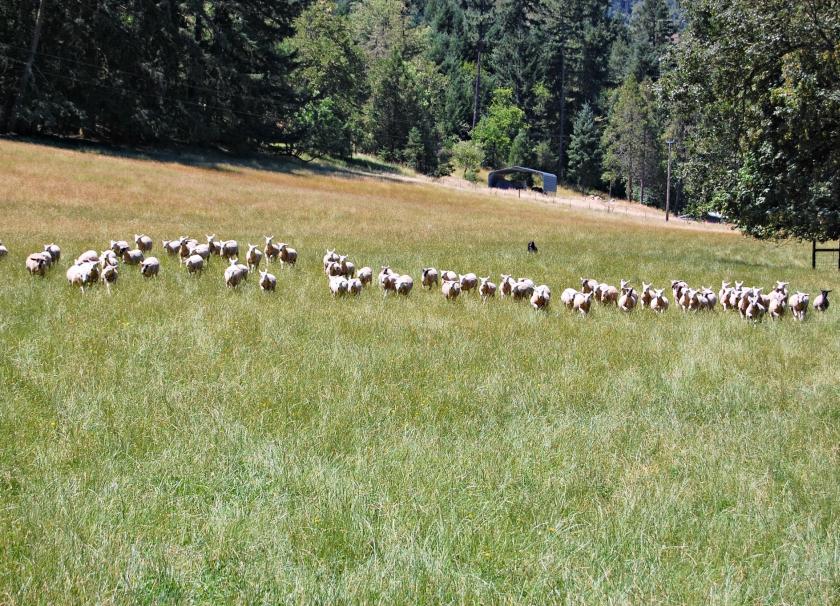
AFC Celebrates 20 Years with Magnolia Farms
This year, the Ashland Food Co-op proudly celebrates their 20 year partnership with Magnolia Farms. Their pasture raised, no antibiotics, no hormones lamb is a staple in the Co-op Meat Department. Magnolia Farms is graciously donating the lamb for our August First Friday in celebration of our long standing partnership.
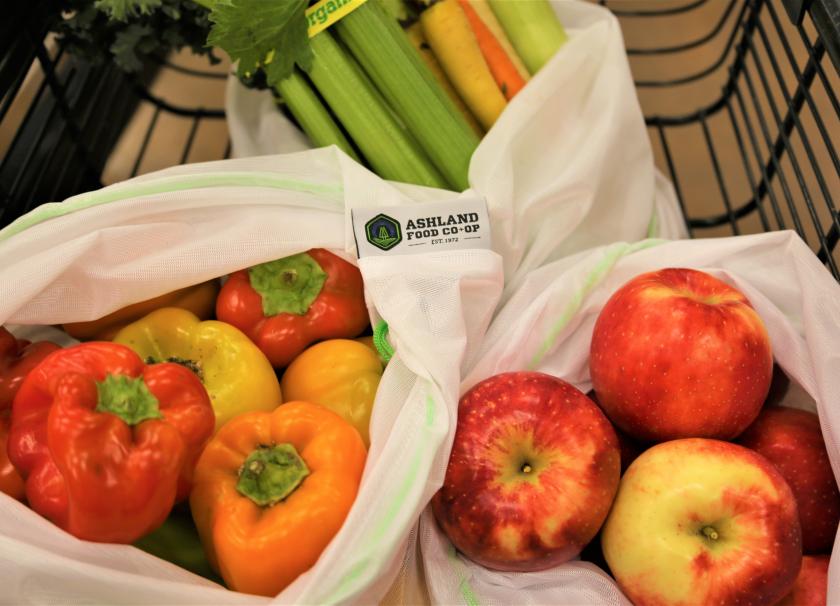
Compostable Bags
The Co-op has been asked if compostable plastic bags are a viable alternative to the standard plastic bags offered in the produce and meat departments.
For several reasons, compostable bags are not in line with the Co-op’s goals and standards.
Not compostable at home
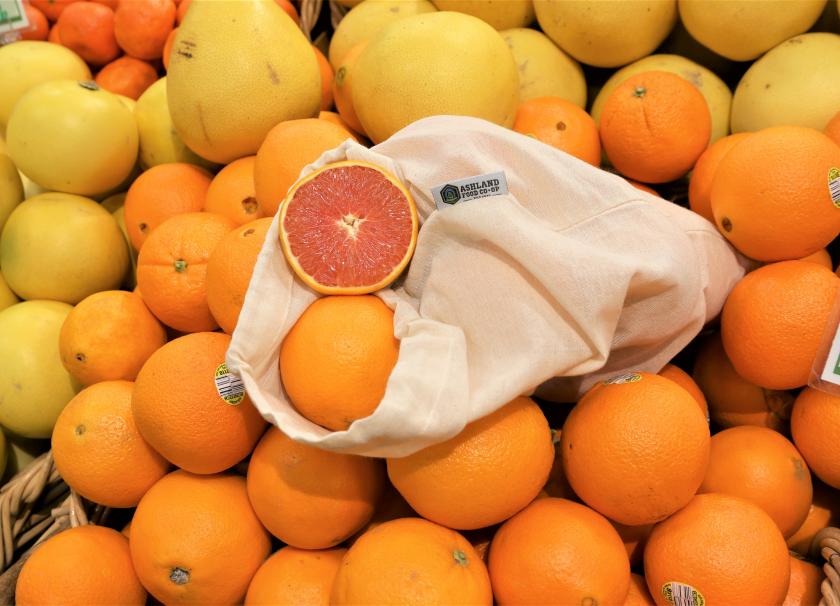
Sustainability Update: Energy efficiency and zero waste
Energy Efficiency
We are happy to announce that we are a member of the Energy Trust of Oregon’s Strategic Energy Management program. This is a free program available to customers of Avista and Pacific Power, which offers awesome incentives including a paid internship!
Community Grant Recipients 2019
The Ashland Food Co-op donated over $29,000 to 28 local nonprofit organizations through their Community Grant Program.
The Community Grant program is the focus of one of the fundamental Cooperative Principles, which all cooperative enterprises follow. Our Community Grant Program supports Principle 7, Concern for Community.
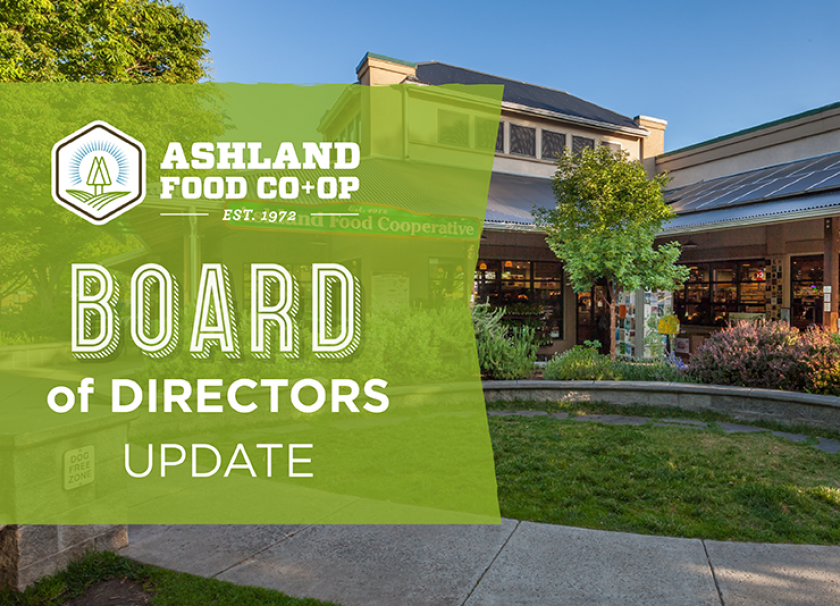
Meet the 2019 Board of Directors
Congratulations to Annie Hoy, Melina Barker, Lisa Beam, and Steve Bowman for their election to the Board of Directors! We were delighted to have such a strong slate of candidates to fill our four vacancies. You can read more about each new director here.

How to stay sustainable with paper products
Have you thought about how sustainable your paper home products are? While the use of single-use plastics has (rightfully) been criticized, some products are made to be single-use - like toilet paper, paper towels, and napkins. With these products, it’s best to examine sustainability by looking at what goes into their production.

2019 Owner Coupon / Benefits Calendar
Hey Co-op owners - if you're wondering if it's a $5 off or 10% discount month... you can reference this calendar.
These benefits are available to all Co-op owners. If you're not an owner yet, you can sign up online!
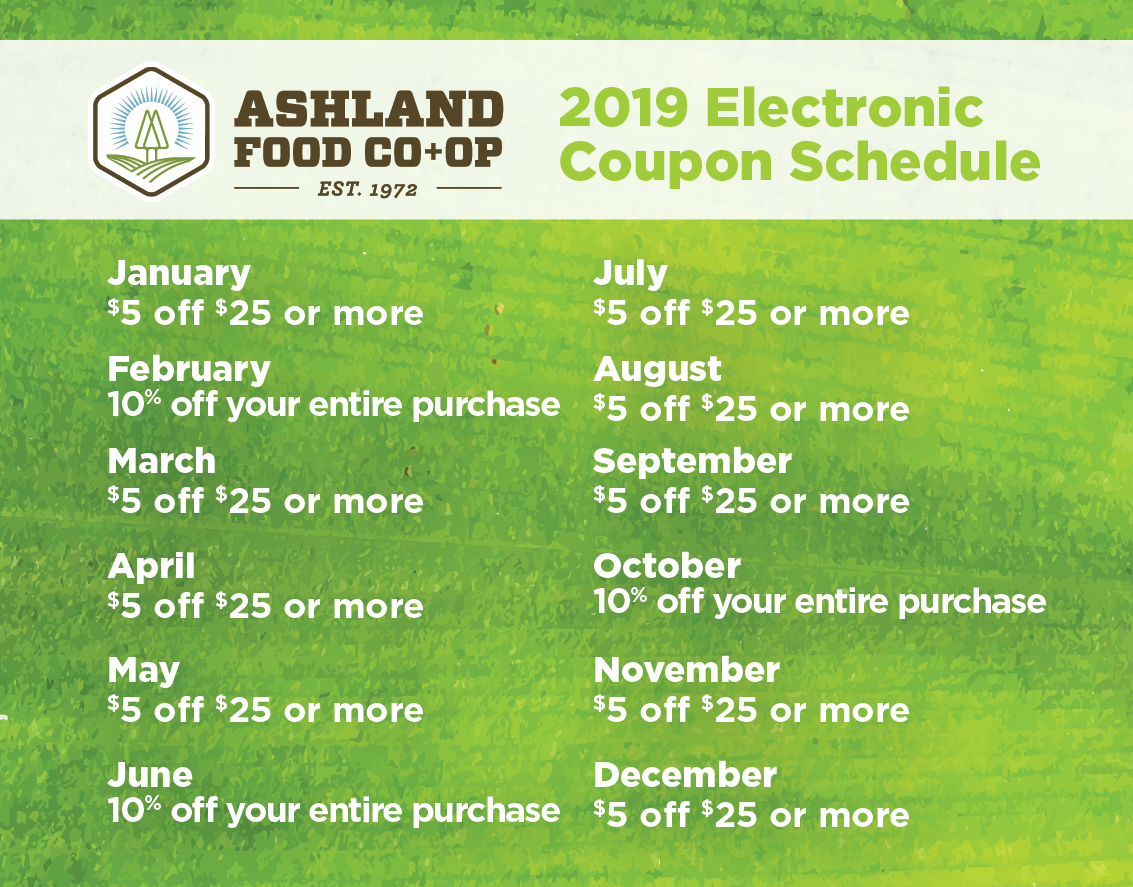
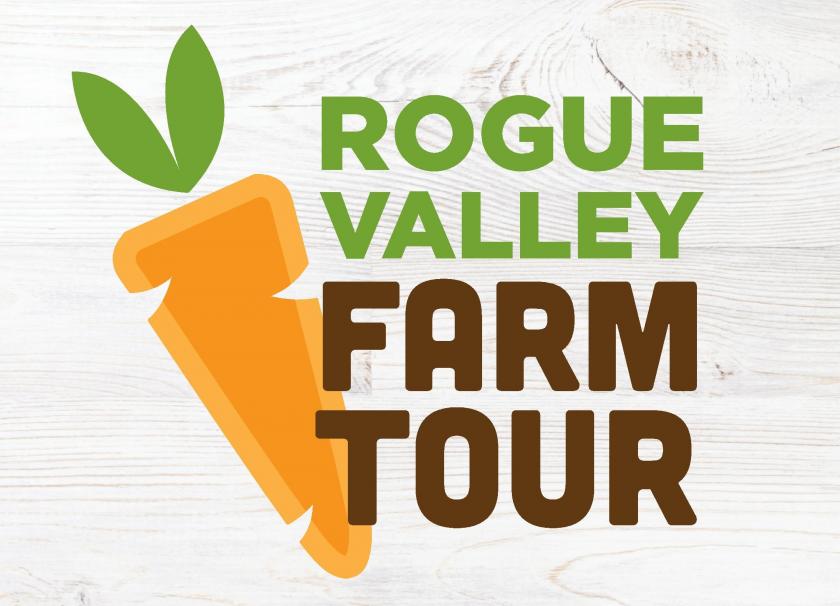
Farm Tour on the Shelves
The Farm Tour shines a spotlight on Southern Oregon - it represents the full range of products grown in the Rogue Valley. The Farm Tour isn't until July 14, but here's a list of tour activities for participating farms that are also on the shelves at the Ashland Food Co-op. Get an early taste of quality local goods!
